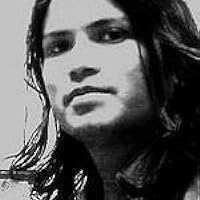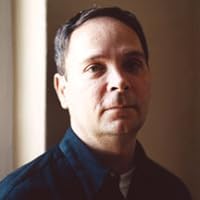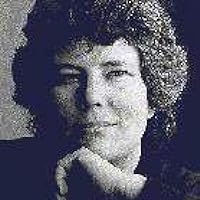Theories Quotes
Quotes tagged as "theories"
Showing 1-30 of 98
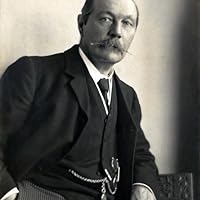
“It is a capital mistake to theorize before one has data. Insensibly one begins to twist facts to suit theories, instead of theories to suit facts.”
― Sherlock Holmes
― Sherlock Holmes
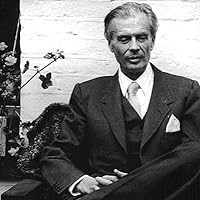
“Man is so intelligent that he feels impelled to invent theories to account for what happens in the world. Unfortunately, he is not quite intelligent enough, in most cases, to find correct explanations. So that when he acts on his theories, he behaves very often like a lunatic.”
―
―
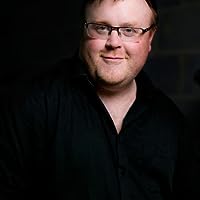
“Just because an apple falls one hundred times out of a hundred does not mean it will fall on the hundred and first.”
― Death Bringer
― Death Bringer

“The four stages of acceptance:
1. This is worthless nonsense.
2. This is an interesting, but perverse, point of view.
3. This is true, but quite unimportant.
4. I always said so."
(Review of The Truth About Death, in: Journal of Genetics 1963, Vol. 58, p.464)”
―
1. This is worthless nonsense.
2. This is an interesting, but perverse, point of view.
3. This is true, but quite unimportant.
4. I always said so."
(Review of The Truth About Death, in: Journal of Genetics 1963, Vol. 58, p.464)”
―
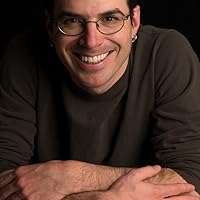
“Pure data. You don’t believe data—you test data.” He grimaced. “If I could put my finger on the moment we genuinely fucked ourselves, it was the moment we decided that data was something you could use words like believe or disbelieve around.”
― The Water Knife
― The Water Knife

“The whole war between the atheist and the theist comes down to this: the atheist believes a 'what' created the universe; the theist believes a 'who' created the universe.”
― Killosophy
― Killosophy
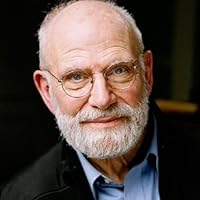
“There are, of course, inherent tendencies to repetition in music itself. Our poetry, our ballads, our songs are full of repetition; nursery rhymes and the little chants and songs we use to teach young children have choruses and refrains. We are attracted to repetition, even as adults; we want the stimulus and the reward again and again, and in music we get it. Perhaps, therefore, we should not be surprised, should not complain if the balance sometimes shifts too far and our musical sensitivity becomes a vulnerability.”
― Musicophilia: Tales of Music and the Brain
― Musicophilia: Tales of Music and the Brain
“The dismaying truth is that birtherism is part of a larger pattern of rejection of reality that has taken hold of intimidating segments of one of the two political parties that alternate in power in our governing institutions. It is akin to the view that global warming is a hoax, or that the budget can be balanced through spending cuts alone, or that contraception causes abortion, or that evolution is just another theory, on a par with the theory that the earth is six thousand years old.”
―
―
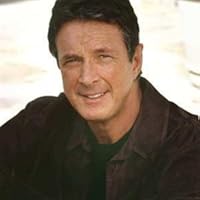
“Most areas of intellectual life have discovered the virtues of speculation, and have embraced them wildly. In academia, speculation is usually dignified as theory.”
―
―

“A wonderful area for speculative academic work is the unknowable. These days religious subjects are in disfavor, but there are still plenty of good topics. The nature of consciousness, the workings of the brain, the origin of aggression, the origin of language, the origin of life on earth, SETI and life on other worlds...this is all great stuff. Wonderful stuff. You can argue it interminably. But it can't be contradicted, because nobody knows the answer to any of these topics.”
―
―
“Why do we love the idea that people might be secretly working together to control and organise the world? Because we don't like to face the fact that our world runs on a combination of chaos, incompetence and confusion.”
―
―
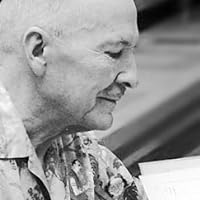
“You were probably educated in the conventional economic theories of your period which were magnificent and most ingenious, but--if you will pardon my saying so--all wrong.”
― For Us, the Living: A Comedy of Customs
― For Us, the Living: A Comedy of Customs
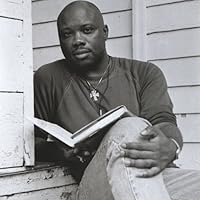
“History is a hermaphrodite with many distinguished lovers. We are neither mysteries nor strangers but the living breath of revelation made flesh by the unrestrained desires of a free and universal love. Universal me. Universal you.”
--from Past Present and Future are One”
― Elemental: The Power of Illuminated Love
--from Past Present and Future are One”
― Elemental: The Power of Illuminated Love

“Mere lack of evidence, of course, is no reason to denounce a theory. Look at intelligent design. The fact that it is bollocks hasn’t stopped a good many people from believing in it. Darwinism itself is only supported by tons of evidence, which is a clear indication that Darwin didn’t write his books himself.”
―
―
“The formal scientific definition of theory is quite different from the everyday meaning of the word. It refers to a comprehensive explanation of some aspect of nature that is supported by a vast body of evidence.”
―
―
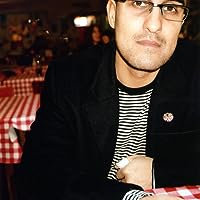
“What if one were to want to hunt for these hidden presences? You can’t just rummage around like you’re at a yard sale. You have to listen. You have to pay attention. There are certain things you can’t look at directly. You need to trick them into revealing themselves. That’s what we’re doing with Walter, Jaz. We’re juxtaposing things, listening for echoes. It’s not some silly cybernetic dream of command and control, modeling the whole world so you can predict the outcome. It’s certainly not a theory of everything. I don’t have a theory of any kind. What I have is far more profound.’
‘What’s that?’
‘A sense of humor.’
Jaz looked at him, trying to find a clue in his gaunt face, in the clear gray eyes watching him with such - what? Amusement? Condescension? There was something about the man which brought on a sort of hermeneutic despair. He was a forest of signs.
‘We’re hunting for jokes.’ Bachman spoke slowly, as if to a child. ‘Parapraxes. Cosmic slips of the tongue. They’re the key to the locked door. They’ll help us discover it.’
‘Discover what?’
‘The face of God. What else would we be looking for?”
― Gods Without Men
‘What’s that?’
‘A sense of humor.’
Jaz looked at him, trying to find a clue in his gaunt face, in the clear gray eyes watching him with such - what? Amusement? Condescension? There was something about the man which brought on a sort of hermeneutic despair. He was a forest of signs.
‘We’re hunting for jokes.’ Bachman spoke slowly, as if to a child. ‘Parapraxes. Cosmic slips of the tongue. They’re the key to the locked door. They’ll help us discover it.’
‘Discover what?’
‘The face of God. What else would we be looking for?”
― Gods Without Men

“And as their penile pain began to subside, the two men were able to form more complex thoughts, resulting in a collaborative work: the development of a worldview that might be described as “penilosophy.”
― Sex in the Title: A Comedy about Dating, Sex, and Romance in NYC
― Sex in the Title: A Comedy about Dating, Sex, and Romance in NYC
“Theoretical knowledge is not the exclusive domain of ivory tower intellectuals, but is, in fact, a crucial necessity of man's proper survival. Every bit of your mental contents is derived from some theory, and your success and happiness hinge on whether it is true or false, good or evil.”
― Heavy Duty
― Heavy Duty

“Some folk say I'm a fool, but there's more to this world than meets the eye.' I waited quietly.
'There's this world,' she banged the wall graphically, 'and there's this world,' she thumped her chest. 'If you want to make sense of either, you have to take notice of both.”
― Oranges Are Not the Only Fruit
'There's this world,' she banged the wall graphically, 'and there's this world,' she thumped her chest. 'If you want to make sense of either, you have to take notice of both.”
― Oranges Are Not the Only Fruit
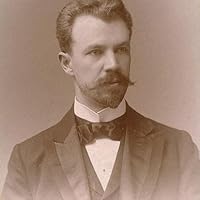
“There was a risk in theorizing. I had witnessed, close up, the fatal, comic effect upon professors and students of hypotheses which had become unconscious convictions. And thus warned, I had thrown overboard, as a reporter facing facts, many of my college-bred notions . . . It was hard to do; ideas harden like arteries; indeed, one theory of mine is that convictions are identical with hardened arteries. But the facts . . . forced me to drop my academic theories one by one; and my reward was the discovery that it was as pleasant to change one’s mind as it was to change one’s clothes. The practice led one to other, more fascinating—theories.”
―
―
“According to these theories, in order for our species to thrive, the weak must die out. It is not only okay for the weak to die, but essential. It is best for our species if the oppressed, the addicted, and the afflicted die, because it will rid our gene pool of the weak. Those at the top of the food chain can do whatever they want, even if it means harming and exploiting others, because as long as they reproduce their dominant genes, they will give future generations of humanity a better shot. This is what an existence looks like that is reduced to evolutionary biology and is void of morality.”
― Pursued: God’s relentless pursuit and a drug addict’s journey to finding purpose
― Pursued: God’s relentless pursuit and a drug addict’s journey to finding purpose
“In many first world countries, school systems teach several explanations for life on earth, and they present each of them as theories, not fact. Evolution is one of the many theories and so is creationism. They present the evidence for both belief systems, as well as the areas in which the evidence is lacking. And they investigate all the reasons why both theories are viable explanations for life on earth. My education was different. I learned that evolution was the only viable explanation and I came away with the impression that it was the ultimate truth that I needed to sculpt my reality around.”
― Pursued: God’s relentless pursuit and a drug addict’s journey to finding purpose
― Pursued: God’s relentless pursuit and a drug addict’s journey to finding purpose
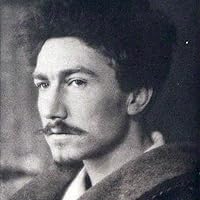
“In general we may say that the deliquescence of instruction in any art proceeds in this manner. A master invents a gadget, or procedure to perform a particular function, or a limited set of functions. Pupils adopt the gadget. Most of them use it less skilfully than the master. The next genius may improve it, or he may cast it aside for something more suited to his own aims. Then comes the paste-headed pedagogue or theorist and proclaims the gadget a law, or rule. Then a bureaucracy is endowed, and the pin-headed secretariat attacks every new genius and every form of inventiveness for not obeying the law, and for perceiving something the secretariat does not. The great savants ignore, quite often, the idiocies of the ruck of the teaching profession. [...] the ignorant of one generation set out to make laws, and gullible children next try to obey them.”
― ABC of Reading
― ABC of Reading

“Experience was what Galileo considered key to formulating accurate theories, since experience, which is literally defined as exposure to and observation of facts and events, gives one a tangible, real-life occurrence that substantiates a statement, rather than raw logic, which leads one to consider what’s plausible based on probability and deduction but not necessarily what’s true. Raw logic, Galileo knew, could lead one to discover a possibility, but not an actuality. Experience exposes the facts of the REAL WORLD, not what logic and reasoning, or the mind alone can create. Aristotle did not want to rely on abstractions and intangibilities, but in reality, he did, as he used sole logic.”
― For the Intellect
― For the Intellect

“We cannot limit ourselves to accept only theories while denying the practical existence of things.”
―
―

“We cannot limit ourselves to accepting only theories while denying the practical existence of things.”
―
―
“The "Three Dimensions of Power Theory," which I came understand, delineates three distinct ways in which power is exercised in human societies, reflecting the main philosophical currents of the Warring States Period in China: Confucianism, Taoism, and Legalism. According to this theory, Confucianism promotes government through Virtue and Tradition, emphasizing the importance of morality and ethical values as pillars of power. This aspect is exemplified by the Han Dynasty, which adopted examinations based on Confucian teachings to select civil servants. On the other hand, Taoism defends a government based on Harmony and Natural Law, prioritizing the adaptability and conformity of human laws with the laws of nature, an idea centered on the concept of "non-action" (wu wei) proposed by Laozi. Finally, Legalism emphasizes Order and Punishment, arguing that stability is achieved through strict laws and severe punishments, a vision embodied by Qin Shi Huang, the first emperor of China, who consolidated his regime under a strict legal code. These approaches are cyclical and alternate according to the needs and challenges of different historical periods, reflecting the evolution and dynamics of power over time.”
―
―
All Quotes
|
My Quotes
|
Add A Quote
Browse By Tag
- Love Quotes 97.5k
- Life Quotes 76k
- Inspirational Quotes 73k
- Humor Quotes 43.5k
- Philosophy Quotes 29.5k
- Inspirational Quotes Quotes 27k
- God Quotes 26k
- Truth Quotes 23.5k
- Wisdom Quotes 23.5k
- Romance Quotes 23k
- Poetry Quotes 22k
- Death Quotes 20k
- Happiness Quotes 18.5k
- Life Lessons Quotes 18.5k
- Hope Quotes 18k
- Faith Quotes 18k
- Quotes Quotes 16.5k
- Inspiration Quotes 16.5k
- Spirituality Quotes 15k
- Religion Quotes 15k
- Motivational Quotes 15k
- Writing Quotes 15k
- Relationships Quotes 14.5k
- Life Quotes Quotes 14k
- Love Quotes Quotes 14k
- Success Quotes 13.5k
- Time Quotes 12.5k
- Motivation Quotes 12k
- Science Quotes 11.5k
- Motivational Quotes Quotes 11.5k

